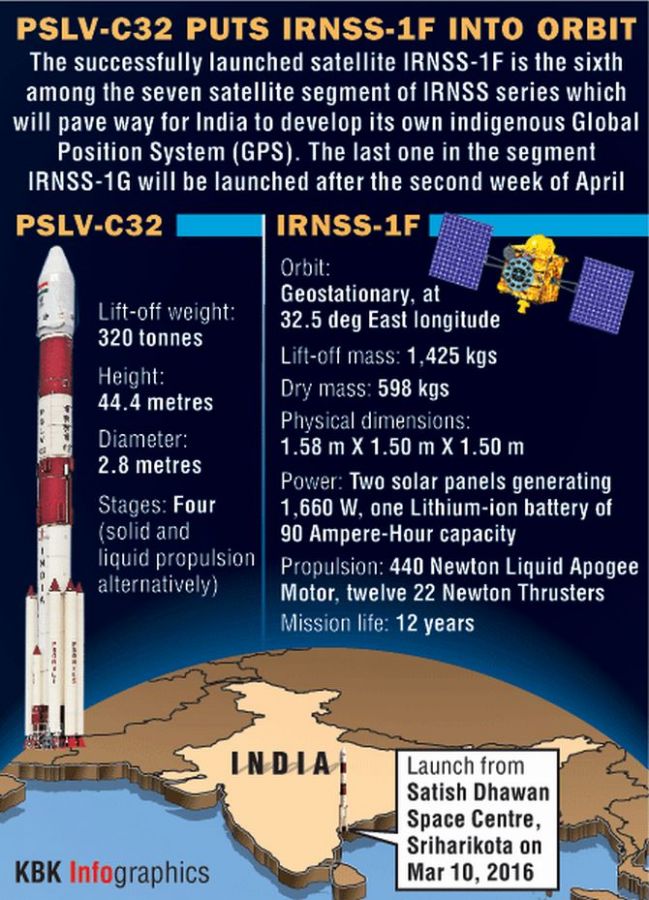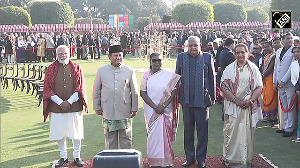India on Wednesday successfully put its sixth navigation satellite into the intended orbit in a launch that is just one step away from having its own regional navigation satellite system that will be on par with the US-based Global Positioning System.

The applications of the system that is expected to be "accurate and efficient" include terrestrial and marine navigation, disaster management, vehicle tracking and fleet management, navigation aide for hikers and travellers, visual and voice navigation for drivers.
In a textbook launch, Indian Space Research Organisation's Polar Satellite Launch Vehicle (PSLV C32) blasted off into cirrus (high altitude) clouds from the second launch pad at 4.01 pm at the Satish Dhawan Space Centre here, about 100 km from Chennai.
ISRO delayed the launch by one minute to avoid a possible collision with space debris.
The PSLV, in its 33rd consecutive successful flight, placed the Indian Regional Navigational Satellite System 1F, the latest navigation satellite, into precise orbit 20.2 minutes after the lift-off as the ISRO scientists at the Mission Control Centre broke into applause.

"PSLV C-32 has put the satellite into right orbit. We have only one more in the constellation to complete the regional navigational system, which we hope to do next month," ISRO Chairman A S Kiran Kumar said.
Prime Minister Narendra Modi lauded ISRO scientists for the successful launch, saying it was an "accomplishment we all take immense pride in."
"Successful launch of IRNSS-1F is an accomplishment we all take immense pride in. I salute the hard work of our scientists & @isro," he tweeted.
Mission Director B Jayakumar said "The sixth satellite of our own navigational system has been placed very safely and very precisely. The vehicle (PSLV C-32) has done the job wonderfully and the inclination achieved is very close to the target."

IRNSS 1F, with a 12-year mission life, is the sixth and penultimate in the constellation of seven satellites planned under IRNSS, which would be on par with the GPS.
Earlier, at the end of the 54-hour countdown, the rocket lifted off as planned and all its four stages performed as programmed till the separation of IRNSS 1F.
After the satellite was placed into orbit, the two solar panels of IRNSS-1F were automatically deployed in quick succession.

ISRO scientists said the Master Control Facility in Hassan (Karnataka) will take control of the satellite to perform further orbit raising operations and IRNSS 1F was likely to become operational in a month.
Incidetally, Kiran Kumar said IRNSS-1E, the fifth in the series launched on January 20 last, has become operational now.
The first in the series, IRNSS-1A, was launched in July 2013 followed by IRNSS-1B (April 4, 2014), IRNSS-1C (October 16) IRNSS-1D (March 28, 2015) and IRNSS-1E.
For the IRNSS-1F launch, the "XL" variant of PSLV used as in previous launches of IRNSS satellites.
Along with the navigation payload and ranging payload, IRNSS-1F also carries a "highly accurate Rubidium atomic clock" with it. The payload will transmit navigation service signals to users.











 © 2025
© 2025